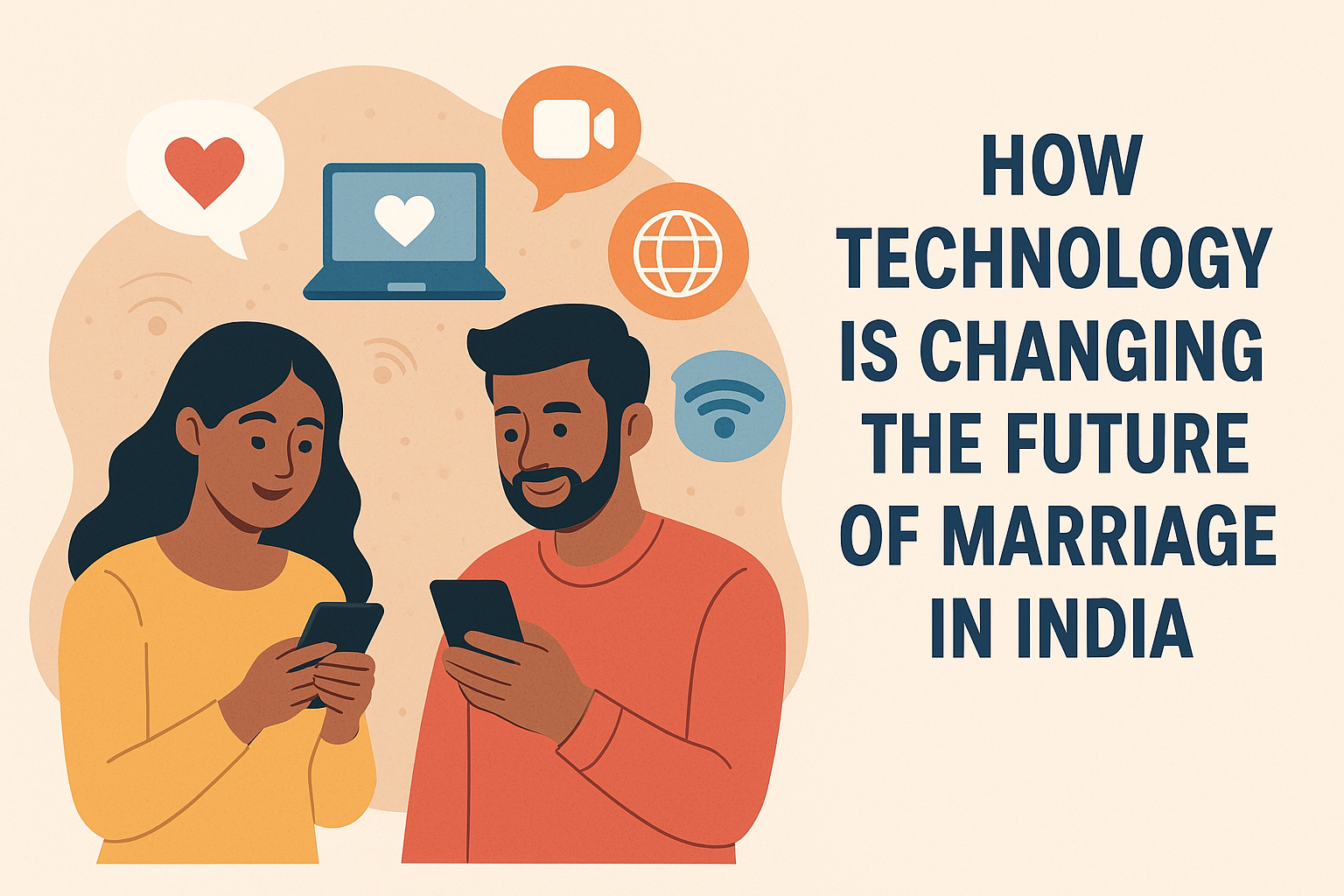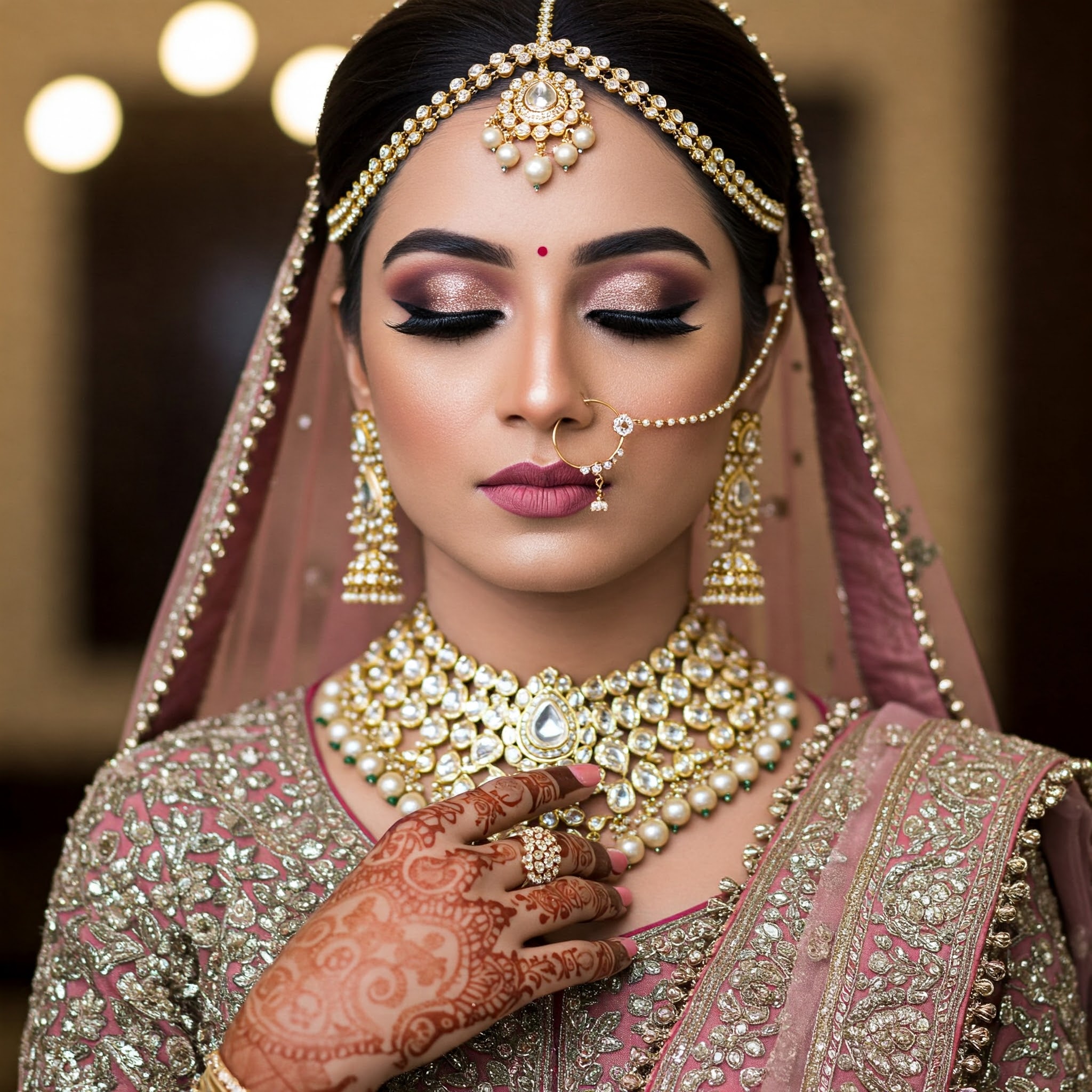
How Technology is Changing the Future of Marriage in India
02-Apr-2025 DigiShaadi
Introduction
The institution of marriage has been a cornerstone of Indian society for centuries. Traditionally, marriages were arranged by families, relying on word-of-mouth, community networks, and religious considerations. However, technology has revolutionized how people meet, communicate, and decide on their life partners. From online matrimonial platforms to AI-driven matchmaking, digital innovations are transforming the future of marriage in India.
In this article, we will explore how technology is reshaping the matrimonial landscape, addressing trends, challenges, and future possibilities.
The Rise of Online Matrimonial Platforms
One of the most significant technological advancements in the Indian marriage ecosystem is the proliferation of online matrimonial platforms. Websites such as Shaadi.com, Jeevansathi, BharatMatrimony, and DigiShaadi have transformed how people search for potential life partners.
Benefits of Online Matrimony Platforms:
Wider Reach: These platforms connect individuals from different parts of India and the world, expanding options beyond local communities.
Personalized Matches: Advanced algorithms suggest matches based on personal preferences, education, profession, religion, and caste.
Privacy and Security: Verified profiles and AI-powered fraud detection ensure safety while searching for a partner.
Convenience: Unlike traditional matchmaking, which often involves middlemen, online platforms allow individuals to interact directly with potential partners.
Artificial Intelligence and Data Analytics in Matchmaking
Artificial Intelligence (AI) is playing a crucial role in modern matchmaking. AI-powered algorithms analyze vast amounts of data to suggest compatible matches based on:
Personality traits derived from user interactions
Behavioral analysis of profiles visited and engagement patterns
Compatibility scores based on mutual interests and values
Some platforms use machine learning models that continuously improve match suggestions based on user feedback. AI also helps filter out fake profiles and identify potential red flags, making the process safer and more efficient.
Virtual and Augmented Reality in Matrimony
The future of marriage in India is also being shaped by Virtual Reality (VR) and Augmented Reality (AR).
Virtual Meetings: Prospective matches can meet in a 3D virtual environment, simulating real-life conversations before an in-person meeting.
Digital Wedding Planning: AR-powered apps allow couples to visualize wedding venues, decorations, and attire before making decisions.
Cultural Ceremonies in the Digital Space: Families separated by distance can participate in engagement ceremonies via VR, ensuring a traditional yet modern experience.
Social Media’s Role in Modern Marriages
Social media platforms like Instagram, Facebook, LinkedIn, and WhatsApp have also become instrumental in modern matchmaking. Many individuals use these platforms to
Learn more about a potential match’s lifestyle and social presence
Connect with mutual friends for background verification
Engage in conversations before committing to a relationship
Additionally, some communities have dedicated Facebook groups and WhatsApp forums where families share matrimonial ads, simplifying the search process.
Digital Wedding Planning and E-Invitations
Once a couple finds their match, the next step is wedding planning. Technology has revolutionized this aspect as well:
Online Wedding Planning Portals: Websites like WedMeGood and WeddingWire offer venue suggestions, vendor listings, and budget planning tools.
E-Invitations and Wedding Websites: Digital invitations save costs and time, allowing couples to send creative animated invites via email and WhatsApp.
Live Streaming of Weddings: With platforms like Zoom and YouTube Live, family and friends from around the world can virtually attend wedding ceremonies.
Blockchain and Smart Contracts in Marriage
Blockchain technology is emerging as a new trend in the marriage ecosystem. Some countries have experimented with blockchain-based marriage registrations, ensuring secure and tamper-proof records. In India, smart contracts may soon be used for:
Marriage certificates stored on a blockchain ledger to prevent fraud
Prenuptial agreements with terms automatically executed via smart contracts
This could improve transparency and reduce legal disputes related to marriage.
Challenges of Technology in Matrimony
Despite the numerous advantages, there are also challenges associated with tech-driven matrimony:
Privacy Concerns: Personal data on matrimonial websites can be vulnerable to cyber threats.
Fake Profiles and Catfishing: Despite AI detection, some fraudulent profiles still exist.
Over-Reliance on Algorithms: Compatibility based on data may not always translate into emotional compatibility.
Cultural Resistance: Many families still prefer traditional matchmaking over digital methods.
The Future of Marriage in India
The future of marriage in India will continue to be shaped by technology in innovative ways:
AI-based virtual relationship counseling to improve communication between couples.
DNA matchmaking for advanced compatibility analysis based on genetic markers.
Holographic wedding experiences where distant relatives can virtually participate in ceremonies.
Conclusion
Technology is undeniably changing the future of marriage in India. From AI-powered matchmaking to VR-based meetings and blockchain-secured marriage records, the digital revolution is making the process more efficient, accessible, and personalized. While challenges remain, the benefits far outweigh the drawbacks, ensuring that the institution of marriage evolves with the times.
As technology continues to advance, the way Indians meet, connect, and marry will become even more seamless, bridging the gap between tradition and modernity.




